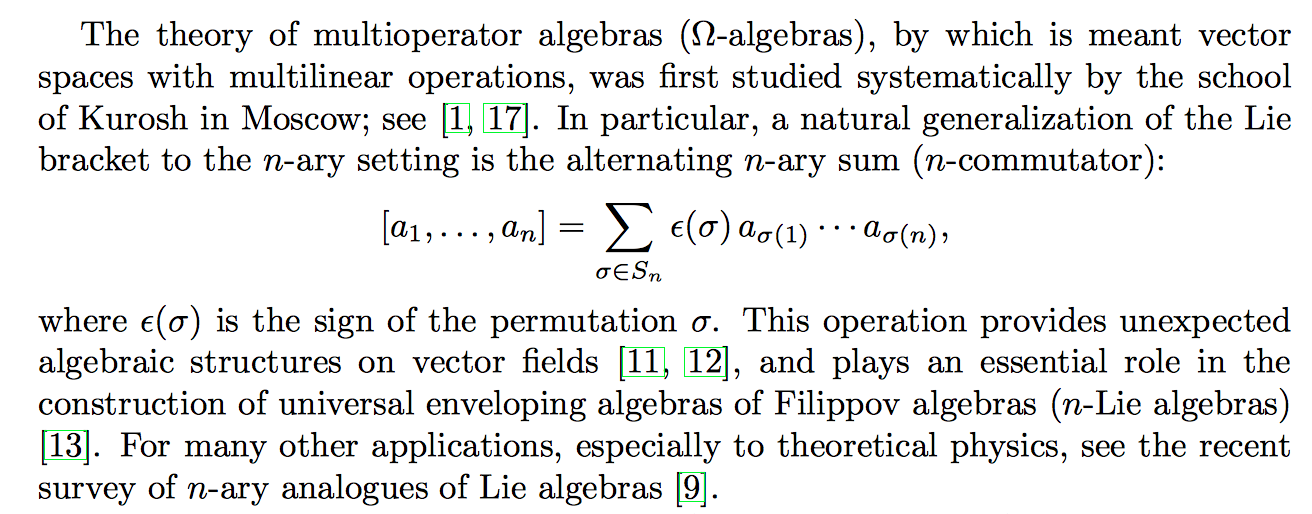I was wondering if there's any attempt to generalize the commutator for something general for more than two terms.
Here's what I was thinking of, for $[A,B]=AB-BA$, so for three terms:
$[A,B,C] = ABC+BCA+CAB-BAC-CBA-ACB$
where I have taken a plus sign for a cyclic permutation of $ABC$, and a minus sign for acyclic permutation of $ABC$.
Is such a generalization still called commutator or something else?

